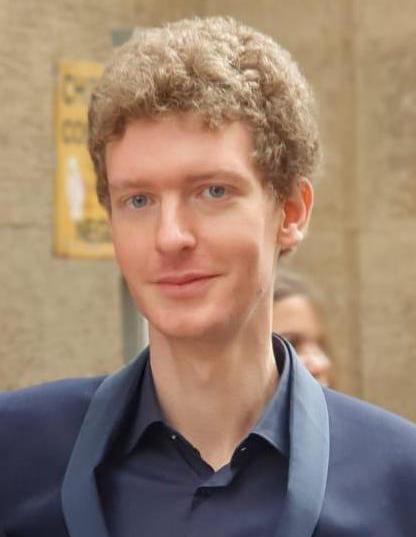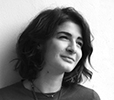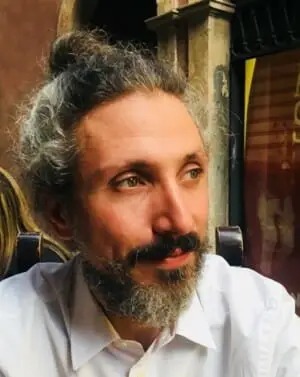Studying at the University of Verona
Here you can find information on the organisational aspects of the Programme, lecture timetables, learning activities and useful contact details for your time at the University, from enrolment to graduation.
Academic calendar
The academic calendar shows the deadlines and scheduled events that are relevant to students, teaching and technical-administrative staff of the University. Public holidays and University closures are also indicated. The academic year normally begins on 1 October each year and ends on 30 September of the following year.
Course calendar
The Academic Calendar sets out the degree programme lecture and exam timetables, as well as the relevant university closure dates..
| Period | From | To |
|---|---|---|
| Sem. 1A | Sep 21, 2020 | Oct 31, 2020 |
| Sem. 1B | Nov 9, 2020 | Jan 9, 2021 |
| Sem. 2A | Feb 15, 2021 | Apr 1, 2021 |
| Sem. 2B | Apr 14, 2021 | May 29, 2021 |
| Session | From | To |
|---|---|---|
| Sessione d'esame invernale | Jan 14, 2021 | Feb 13, 2021 |
| Sessione d'esame estiva | Jun 7, 2021 | Jul 24, 2021 |
| Sessione d'esame autunnale | Aug 23, 2021 | Sep 18, 2021 |
| Session | From | To |
|---|---|---|
| Sessione di laurea estiva | Jul 5, 2021 | Jul 10, 2021 |
| Sessione di laurea autunnale | Nov 8, 2021 | Nov 13, 2021 |
| Sessione di laurea invernale | Mar 28, 2022 | Apr 1, 2022 |
| Period | From | To |
|---|---|---|
| Festa di Ognissanti | Nov 1, 2020 | Nov 1, 2020 |
| Festa dell'Immacolata | Dec 8, 2020 | Dec 8, 2020 |
| Vacanze di Natale | Dec 24, 2020 | Jan 6, 2021 |
| Vacanze di Pasqua | Apr 2, 2021 | Apr 6, 2021 |
| Festa della liberazione | Apr 25, 2021 | Apr 25, 2021 |
| Festa del lavoro | May 1, 2021 | May 1, 2021 |
| Festa del Santo Patrono | May 21, 2021 | May 21, 2021 |
| Festa della Repubblica | Jun 2, 2021 | Jun 2, 2021 |
| Vacanze estive | Aug 9, 2021 | Aug 15, 2021 |
Exam calendar
Exam dates and rounds are managed by the relevant Humanistic Studies Teaching and Student Services Unit.
To view all the exam sessions available, please use the Exam dashboard on ESSE3.
If you forgot your login details or have problems logging in, please contact the relevant IT HelpDesk, or check the login details recovery web page.
Should you have any doubts or questions, please check the Enrollment FAQs
Academic staff
 francesco.bianchi@univr.it
francesco.bianchi@univr.it
 evita.calabrese@univr.it
evita.calabrese@univr.it
 andrea.cavalletti@univr.it
andrea.cavalletti@univr.it
 elena.desilvestri@univr.it
elena.desilvestri@univr.it

Mastrocinque Attilio
 attilio.mastrocinque@univr.it
attilio.mastrocinque@univr.it
 +39 045802 8386
+39 045802 8386
 stefania.pontrandolfo@univr.it
stefania.pontrandolfo@univr.it
 pieralberto.porcedducilione@univr.it; pierre_pordd@yahoo.it
pieralberto.porcedducilione@univr.it; pierre_pordd@yahoo.it
 045 8028732
045 8028732
 nicola.turrini@univr.it
nicola.turrini@univr.it
 mariarenata.zanchin@univr.it
mariarenata.zanchin@univr.it
Study Plan
The Study Plan includes all modules, teaching and learning activities that each student will need to undertake during their time at the University.
Please select your Study Plan based on your enrollment year.
1° Year
| Modules | Credits | TAF | SSD |
|---|
2° Year activated in the A.Y. 2021/2022
| Modules | Credits | TAF | SSD |
|---|
3° Year activated in the A.Y. 2022/2023
| Modules | Credits | TAF | SSD |
|---|
| Modules | Credits | TAF | SSD |
|---|
| Modules | Credits | TAF | SSD |
|---|
| Modules | Credits | TAF | SSD |
|---|
| Modules | Credits | TAF | SSD |
|---|
Legend | Type of training activity (TTA)
TAF (Type of Educational Activity) All courses and activities are classified into different types of educational activities, indicated by a letter.
Philosophical Hermeneutics (2022/2023)
Teaching code
4S00985
Teacher
Coordinator
Credits
6
Language
Italian
Scientific Disciplinary Sector (SSD)
M-FIL/01 - THEORETICAL PHILOSOPHY
Period
Sem. 1A dal Sep 26, 2022 al Nov 5, 2022.
Learning objectives
Hermeneutics
The principal aim of the course is to give an adequate understanding of what philosophical hermeneutics properly is. Hermeneutics is usually understood as the discipline and art of interpretation. This type of hermeneutics arises from the exegesis of sacred and humanistic texts, which follows the rediscovery of Greek civilization with the Italian Renaissance and the free reading of the Bible with the German Reformation. The theory of interpretation is a variety of philological and religious hermeneutics, it is a tool for understanding the written text and the dogmatic subjectivity. Instead, properly philosophical hermeneutics is not a theory of interpretation and has nothing to do with text and language. Philosophical hermeneutics was born in the twentieth century with Husserl - which defines phenomenology as a “hermeneutics of conscious life” – and with Heidegger, for whom the exercise of philosophy is a “hermeneutics of facticity”, i.e. the understanding existence has of itself. Such hermeneutics is not “interpretation” but “explication” and “unfolding” (Auslegung), i.e. spontaneous articulation of being, an event that precedes language and in which Being unfolds and participates in all possible ways of being.
At the end of the course, students will be able to follow the twisting paths of 20th century hermeneutics with greater awareness and agility, thus enhancing their knowledge of contemporary philosophical debate. They will have the capacity to autonomously comprehend texts and subjects addressed during the course, to employ a proper philosophical terminology, to communicate philosophical topics with specialists and non-specialists, and the ability to to continue studies at a MA level.
Prerequisites and basic notions
No prerequisites are required.
Program
COSMOGRAMS. SEMIOTICS AND COSMOLOGY IN C.S. PEIRCE The course aims to investigate the project of a “universal writing” in the pragmatism of Charles Sanders Peirce. In particular, the relationship between Peircian semiotics - understood as the theory of signs and their interpretation - and the cosmological instance that emerges in the last period of the American philosopher's reflection will be discussed. In the first part of the course the famous triadic theory of the sign will be investigated, as the main logical and hermeneutic tool, through the triads Firstness-Secondness-Thirdness and icon-index-symbol. In the second part of the course the integral extension of the theory of the sign to the universe will be analyzed, with particular attention to key notions such as "phaneroscopy", "synechism" and "tychism". The aim of the course will be to show the speculative and hermeneutic significance of the idea of a "universe writing" in which the "kosmos" itself "is written" and strengthened.
Bibliography
Didactic methods
The course will develop through lectures in which the Peircian texts under study will be commented directly. Peircian theories will also be considered starting from case studies to show the operational and applicative potential of his semiotic theory. For attending students, in addition to the texts indicated in the bibliography, an active and participatory presence in the lessons is to be considered an integral part of the course. All lessons will be recorded and will be available on the Moodle page of the course. The texts indicated in the bibliography are purely indicative; the pages to be studied will be indicated during the lessons.
Learning assessment procedures
For all students, attending and non-attending, the test will consist of an oral exam that will focus on the entire program. Alternatively, it is possible to take the exam through the discussion of a paper of 25,000 characters, to be delivered at least one week before the chosen exam; the topic of the thesis must be previously discussed with the teacher. Non-attending students are invited to arrange a reception with the teacher for an orientation interview in view of the exam.
Evaluation criteria
To pass the exam, students must demonstrate that they: - possess a sufficient command of the themes, conceptual tools, reflective paths presented by the texts in the exam bibliography; - possess the ability to retrace and re-elaborate the texts in the bibliography in a sufficiently rigorous and subjectivated manner.
Criteria for the composition of the final grade
The final grade of the oral exam will be expressed out of thirty.
Exam language
Italiano
Type D and Type F activities
Modules not yet included
Career prospects
Module/Programme news
News for students
There you will find information, resources and services useful during your time at the University (Student’s exam record, your study plan on ESSE3, Distance Learning courses, university email account, office forms, administrative procedures, etc.). You can log into MyUnivr with your GIA login details: only in this way will you be able to receive notification of all the notices from your teachers and your secretariat via email and soon also via the Univr app.
Student mentoring
Linguistic training CLA
Gestione carriere
Practical information for students
Documents
| Title | Info File |
|---|---|
|
|
pdf, it, 325 KB, 02/05/23 |
|
|
pdf, it, 212 KB, 02/05/23 |
|
|
pdf, it, 131 KB, 02/05/23 |
Graduation
Documents
| Title | Info File |
|---|---|
|
|
pdf, it, 99 KB, 13/10/23 |
|
|
pdf, it, 101 KB, 10/04/24 |











































